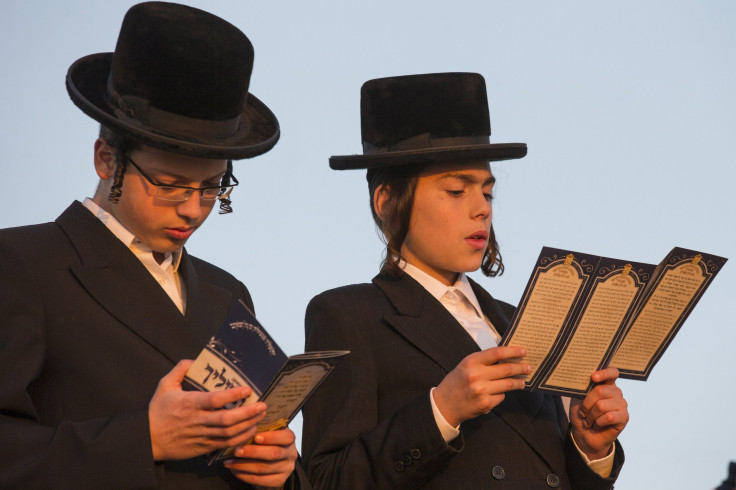Yom Kippur 2016: Key Prayers To Recite On Jewish Day Of Atonement

As well as fasting, Jews across the world will mark the holiest day of the Jewish calendar with intensive reciting of prayers. Yom Kippur, known as the Day of Atonement, will begin this year at sundown Tuesday and conclude shortly after sundown the following day. For many, it means 25 hours of contemplation on the year just gone and the one to come. Here is a selection of the most important prayers from the five services.
Kol Nidre
Kol Nidre annuls the pledges made the previous year. It is read, in Aramaic not Hebrew, at the evening service that begins Yom Kippur.
“All vows, prohibitions, and oaths, consecrations, whether called ‘konam,’ ‘konas’ or any synonymous term, which we may vow, or swear, or consecrate, or prohibit upon ourselves, from the previous Day of Atonement until this Day of Atonement and from this Day of Atonement until the next Day of Atonement we do repent. All of them are undone, abandoned, canceled, annulled and void, and not in effect. Our vows are no longer vows, and our prohibitions are no longer prohibitions, and our oaths are no longer oaths.”
Al Chet
A special version of the Al Chet, a confession of sins featuring a series of statements, is recited several times during the course of Yom Kippur. Each line begins with “For the sin which we have committed before you…”
"For the sin which we have committed before you under duress or willingly.And for the sin which we have committed before you by hard-heartedness.
For the sin which we have committed before you inadvertently.
And for the sin which we have committed before you with an utterance of the lips.
For the sin which we have committed before you with immorality.
And for the sin which we have committed before you openly or secretly.
For the sin which we have committed before you with knowledge and with deceit.
And for the sin which we have committed before you through speech."
You can read the full text here.
Yizkor
Yom Kippur is one of four occasions during the year that the Yizkor is read. While traditionally a memorial prayer for a deceased parent, it can also be used for other relatives.
“May God remember the soul of my father/mother, my teacher who has gone to his world, because I will — without obligating myself with a vow — donate charity for his/her sake. In this merit, may his/her soul be bound up in the bond of life with the souls of Abraham, Isaac and Jacob; Sarah, Rebecca, Rachel and Leah; and with the other righteous men and women who are in the Garden of Eden; let us say, Amen.”
Sheema
During the final service of Yom Kippur, the daily prayer, the Sheema is said three times. On this special occasion, the second verse is read aloud rather than in an undertone.
“Blessed be the name of the glory of His kingdom forever and ever.”
The Neilah service as a whole is unique to this day and it concludes with the sounding of the shofar – a ram’s horn – to signal the end of Yom Kippur.
© Copyright IBTimes 2024. All rights reserved.





















